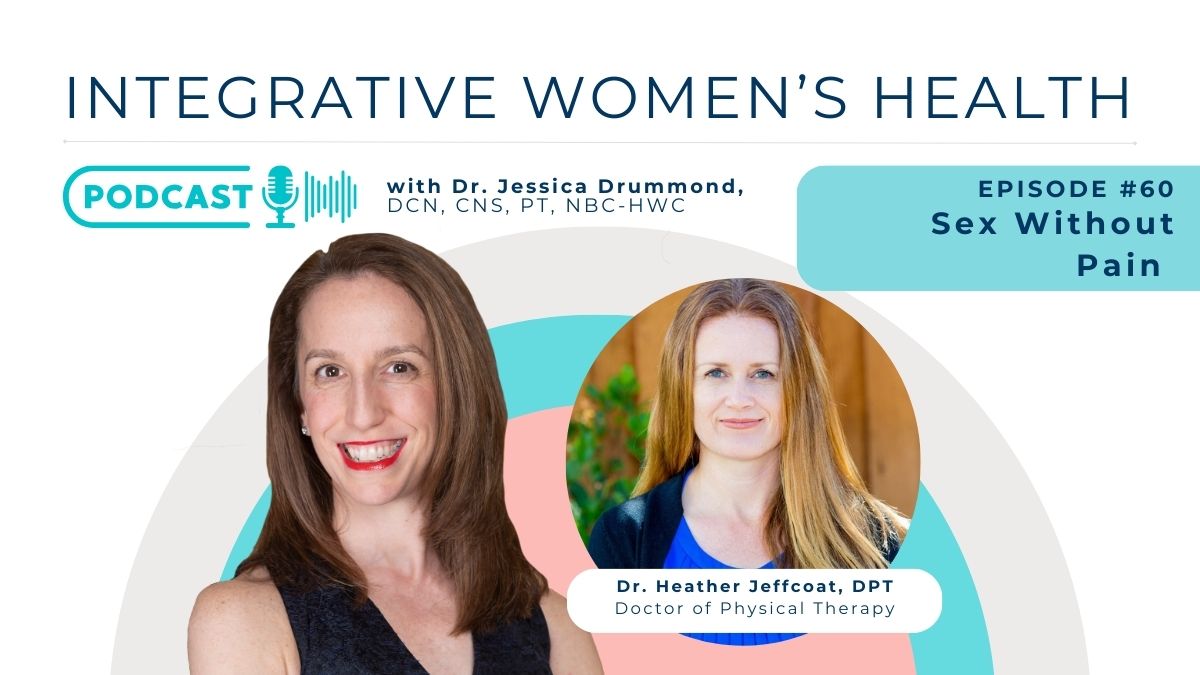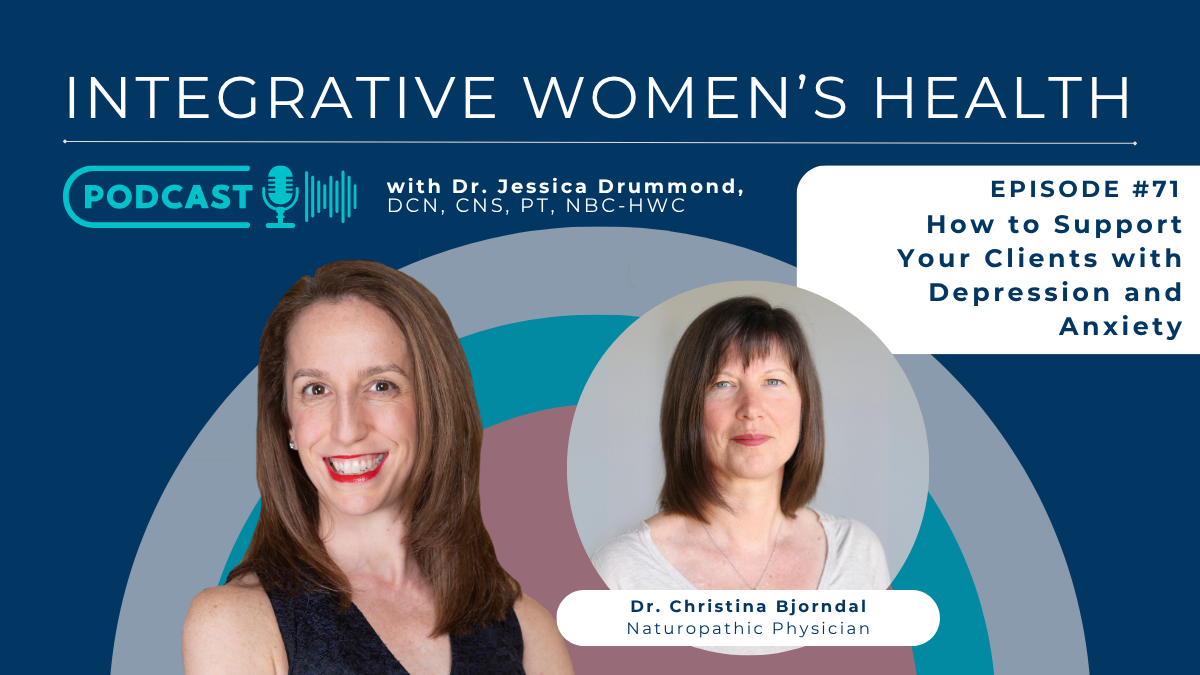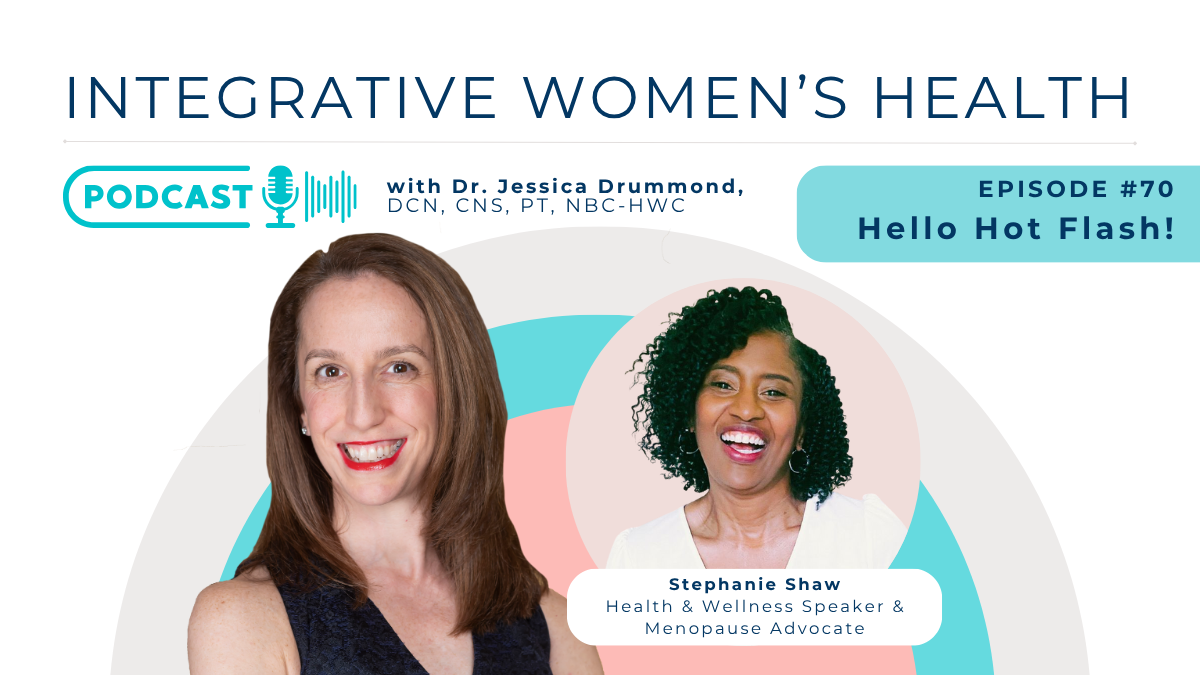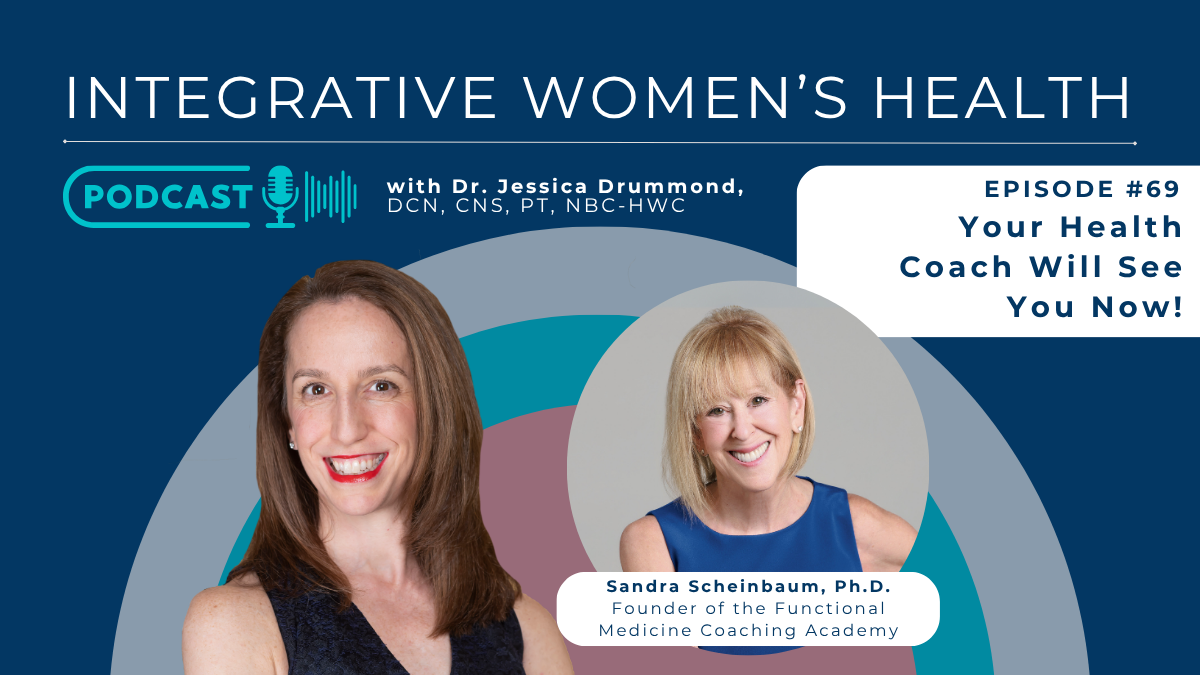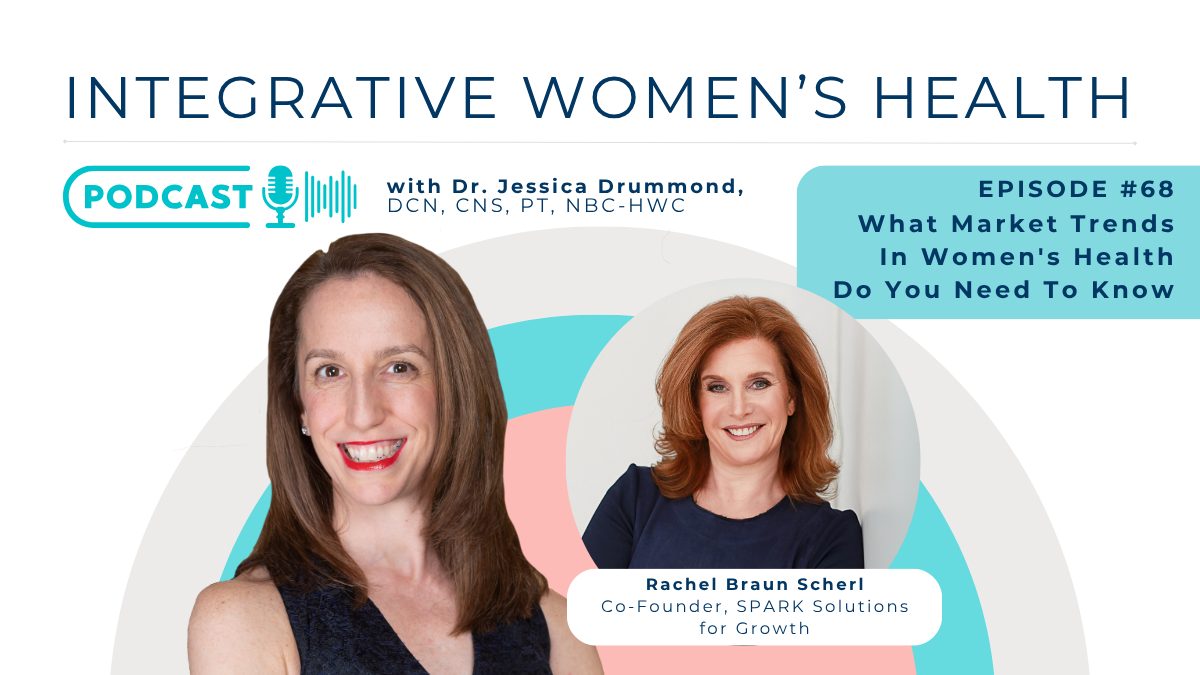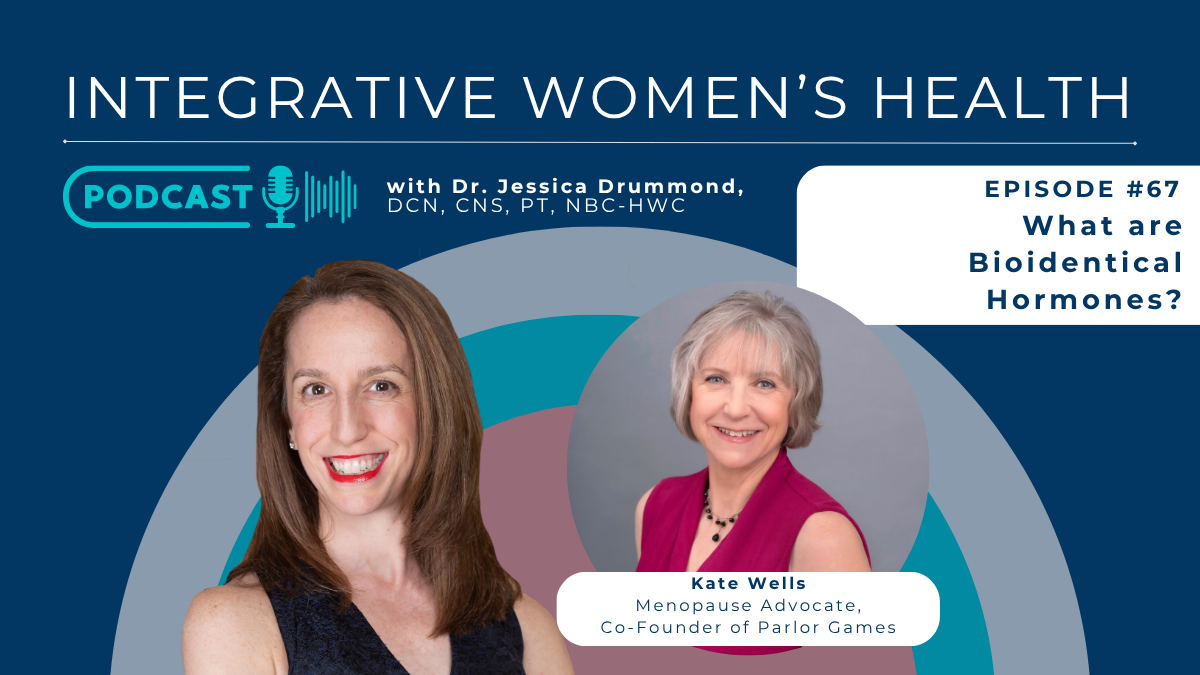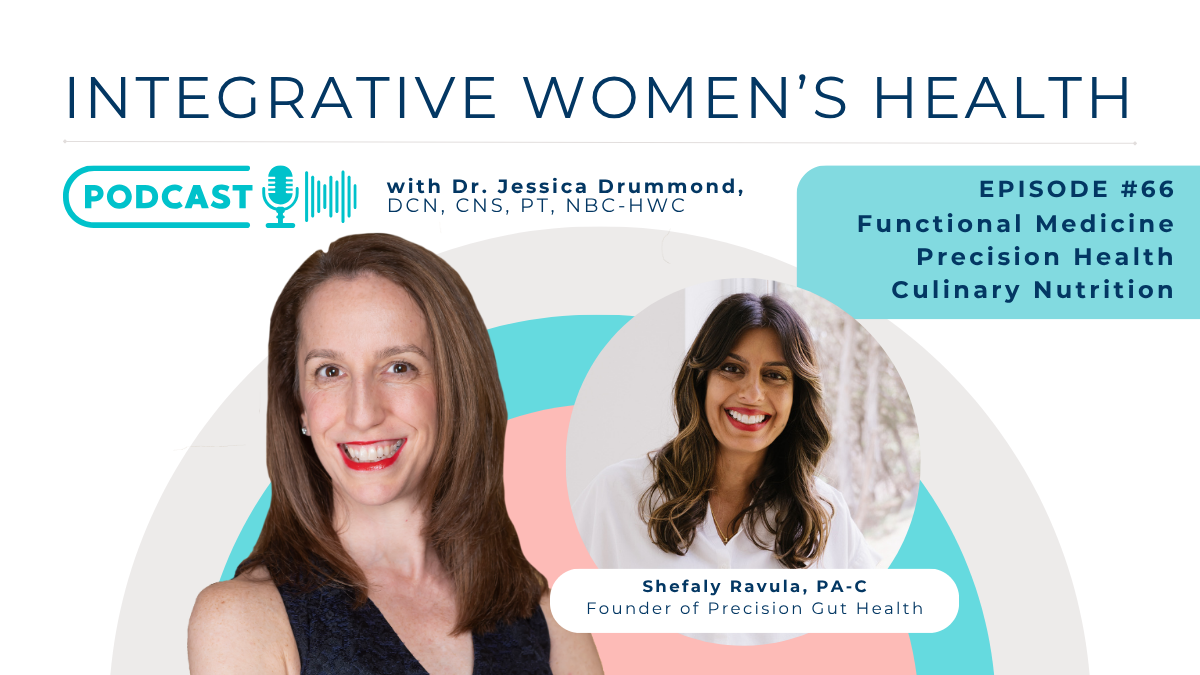Follow Us for Free:
About the episode
“Pelvic health physical therapy is the best-kept secret in medicine.” – Dr. Heather Jeffcoat
While we’ve been seeing Super Bowl ads for erectile dysfunction for years, women’s sexual dysfunction is very stigmatized. The idea of women having the freedom to discuss sexual health and get their questions answered is a new concept that’s only started in the last decade or so.
Sexual health is an important part of a person’s life, and as healthcare professionals, we need to treat it as equal to all other kinds of health. For many women, sexual dysfunction not only impacts their relationships but also their self-esteem. As practitioners, we can help to shift the narrative away from the stigma and bring awareness to the fact that many of these issues are fixable with physical therapy. It’s just important for a woman to know that they can heal and have a more fulfilling sex life.
Today, I’m excited to introduce you to Dr. Heather Jeffcoat, author of Sex Without Pain and a pelvic health physical therapist who has been on a mission to increase access to care and empower women to find more complete healing for their sexual health challenges.
In this conversation, Dr. Heather and I discuss the importance of addressing sexual health as part of overall well-being, Dr. Heather’s career journey from sports medicine to specializing in pelvic health, the need for holistic treatment approaches, how we can address the stigma surrounding sexual pain, accessibility to resources for secual health, ongoing challenges in accessing care, advocating for open conversations about women’s sexual health, and more.
Enjoy the episode, and let’s innovate and integrate together!
About Dr. Heather Jeffcoat, DPT
Dr. Heather Jeffcoat is a graduate of the Doctor of Physical Therapy program through Duke School of Medicine. She founded Fusion Wellness & Femina Physical Therapy in 2009 and now has three locations in Los Angeles. She is also the most recent Past President of the Academy of Pelvic Health Physical Therapy and has served on the Board of Directors and Advisory Board for the International Pelvic Pain Society. Her work focuses on orthopedic, abdominal, pelvic, and sexual health education for all, and she lectures internationally on Female Sexual Dysfunction and chronic pelvic pain (four continents and counting). She is also the author of Sex Without Pain: A Self-Treatment Guide to the Sex Life You Deserve, whose expanded Second Edition came out in March 2025. She has been featured in numerous online, radio, and television spots, including ABC, The Washington Post, Cosmo, Vogue, US News & World Report, Buzzfeed, Glamour, Women’s Health, Livestrong, Prevention, Health Magazine, Popsugar, Bustle, and many more.
Highlights
- The stigma around painful sex and its impact on women’s self-esteem and relationships
- Why Dr. Heather decided to make the transition from sports medicine to pelvic health
- Lack of awareness about pelvic health issues and Dr. Heather’s mission to reach more people
- The rise of sexual health awareness
- Treating pelvic pain within the context of overall body health
- The evolution of pelvic rehab and the integration of orthopedic skills in treatment
- Challenges patients face in accessing pelvic health care
- How systemic issues affect access to pelvic health services
- The importance of increasing access to education and care for sexual health issues
- Free educational resources you can use
- Why Dr. Heather decided to write the updated second edition of Sex Without Pain
- Dr. Heather’s plans for community education events and expanded outreach efforts
- The ongoing need for practitioners to address and normalize conversations about sexual pain
Connect with Dr. Heather Jeffcoat
- Dr. Heather Jeffcoat’s Book | Sex Without Pain: A Self-Treatment Guide to the Sex Life You Deserve
- Fusion Wellness Website
- Fusion Wellness on Instagram @fusionwellnesspt
- Femina Physical Therapy Website
- Femina Physical Therapy on Instagram @FeminaPT
- Dr. Heather Jeffcoat on Instagram @dr.heatherjeffcoat
Ready to revolutionize your career and grow your practice?
- What is the next step in your career in women’s health and wellness? Start here: https://integrativewomenshealthinstitute.com/start-here/
- Integrative Women’s Health Institute on Instagram | @integrativewomenshealth
- Integrative Women’s Health Institute on YouTube
Learn more about The Integrative Women’s Health Institute’s Programs.
Click here for a full transcript of the episode.
Dr. Jessica Drummond 00:00:03 Hi and welcome to the Integrative Women’s Health Podcast. I’m your host, Doctor Jessica Drummond, and I am so thrilled to have you here as we dive into today’s episode. As always, innovating and integrating in the world of women’s health. And just as a reminder, the content in this podcast episode is no substitute for medical advice, diagnosis, or treatment from your medical or licensed health care team. While myself and many of my guests are licensed healthcare professionals, we are not your licensed health care professionals, so you want to get advice on your unique circumstances. Diagnostic recommendations treatment recommendations from your home medical team. Enjoy the episode. Let’s innovate and integrate together. Sexual pain is such a challenge, both to manage and navigate and to take care of. As a practitioner. Today I am so excited to introduce you to doctor Heather Jeffcoat. She is the author of the now second edition of Sex Without Pain. And you’ll see I bungled that too many times in this interview. So welcome back to the Integrative Women’s Health Podcast.
Dr. Jessica Drummond 00:01:31 I’m your host, Doctor Jessica Drummond, and I’m really excited for us to have this conversation with doctor Heather Jeffcoat, because while we’re going to talk about the journey of her career, and while initially it was a really taboo topic, particularly for women. But now the education and information is more widespread thanks to, you know, just conversations in the media, and Heather was a really important part of spearheading. Those conversations. She’s a graduate of the Doctor of Physical Therapy program through the Duke University School of Medicine. She founded Fusion Wellness and Femina Physical Therapy, and she lives in Los Angeles. She’s been practicing in Los Angeles for many decades, and now she has this specialty focus on painful sex. But as you’ll learn in this interview, it’s really important that we put that in context. We live in a world that’s more and more stressful, more and more challenge. And so as physical therapists and other providers that support women with sexual pain, we have to think about how sexual pain can be related to minute orthopaedic changes in myofascial health of the spine and the hips and the feet and the breathing.
Dr. Jessica Drummond 00:02:59 The breath. And it can be so related from a nervous system and an immune system standpoint to full system health. So I think as healthcare professionals, we really need to treat sexual health as equal to all other kinds of health. It’s a key part of a person’s life. So I’m so appreciative of Heather. She’s worked tirelessly in volunteer positions in the Academy of Pelvic Health, in the physical therapy national organization here in the United States, and she’s been featured in news outlets all over the world, everything from US News and World Report to Vogue to Cosmo, to The Washington Post, Women’s Health Magazine, glamour magazine, and so forth, because she reached out to these journalists with a deep mission of supporting women to have full system, full body, holistic, empowered health at all levels, including sexual health. So let’s dive into this conversation and I’ll see you on the other side. Welcome, doctor Heather Jeffcoat. It’s so wonderful to see you and welcome everyone back to the Integrative Women’s Health Podcast. Let’s dive in and talk about pain with sex.
Dr. Jessica Drummond 00:04:26 Why? As a pelvic physical therapist, have you started to more and more and more over your career? Really think about this as an essential function of activities of daily living, if you will, from a PT perspective.
Dr. Heather Jeffcoat 00:04:42 First, thanks for having me on Jessica. And also, I love that you said let’s just dive in to talking about painful sex. Yeah. That’s amazing. That’s the best intro ever. So it’s obviously forever been a very stigmatized condition in women, right? I mean, we’ve been seeing Super Bowl ads for erectile dysfunction for years, for over a decade. Like when it comes to women that have sexual dysfunction, it’s very stigmatized. And entering early on as a physical therapist, treating so many women, seeing how much it impacted not just their relationships but their self-esteem. Right. They’re feeling like they were not a complete person without having their sexual function intact. So I think I took it upon me to be an advocate for them, because these things can be changed. These things that I’m seeing are many times fixable and many times beyond that, fixable with physical therapy.
Dr. Heather Jeffcoat 00:05:44 Like, why doesn’t everybody know this? I’ve been saying for years that pelvic health physical therapy is the best kept secret in medicine. Like, why are we still having to advocate so much to providers to get this care? Because most providers don’t know what to do with it. I think that it’s just important for the women to know that they can heal and have a more fulfilling sex life.
Dr. Jessica Drummond 00:06:12 Yes. And so to circle back, most of our listeners are women struggling with their own challenges, like having painful sex themselves. But we also have quite a few. In fact, most of our community is women’s health and wellness professionals of all disciplines health coaches, physical therapists, nutritionists, gynecologists, and so forth. And so one of the things that’s really interesting for me about your life and career is that you started as a physical therapist, and I want to talk about how your career has evolved because sometimes it’s so inspiring to others to just see how people get to where they are. Where you’re finishing and releasing the second edition of your book.
Dr. Jessica Drummond 00:06:58 You’ve had your own private practice for many years. What was your career evolution like.
Dr. Heather Jeffcoat 00:07:05 Right out at PT school? I actually was a sports med Pete and I loved it. I loved working with athletes of all levels, and it was fulfilling from a standpoint of like, people have these injuries and I can help them and I’m getting people better. And this is where I went to school. But very quickly out of school, I realized the setting of sports medicine was not matching with what I wanted to do with my patients. And you know, not all sports med settings are like this, but my first job, I sometimes would have six patients in an hour.
Dr. Jessica Drummond 00:07:43 Yeah.
Dr. Heather Jeffcoat 00:07:43 I’m like, I didn’t go to Duke University. I spent all this money on my education to just not be able to provide care to anybody. Like what? Care if I have six people in an hour? What am I actually doing for them if they have, you know, chronic back pain, I don’t know. So that became really my eyes.
Dr. Heather Jeffcoat 00:08:03 Opening more to women’s health is what it was called at the time, because I’m more old school like that. So pelvic health now. I found a job about four months after I started that sports med job that was 50% ortho, 50% women’s health. So really started to gain my experience in the field through that second job I had after PT school and moved. I was practicing in Raleigh, North Carolina, moved because of life circumstances back to Los Angeles, where I still live now and focused more and more on women’s and pelvic health. And even if you take insurance, like the first place I worked was insurance based, it’s still a barrier to access the care if someone has a $60 co-pay. Sometimes they just can’t come. Maybe more than that first visit. So I had started to reach out. And this is kind of where I think my current trajectory started to take off was with media. I just started to reach out to like local papers, and if I saw stuff online, like I had Google Alerts and I had Google alerts for like incontinence and like vaginismus and vulvodynia and I would get like a Google alert.
Dr. Heather Jeffcoat 00:09:19 I swear it was like once every two weeks that would pop up. Okay. Like right now I feel like I get like a dozen a day or more, but I would set Google alerts for those, and then I would reach out to those writers that wrote the articles on those pelvic health conditions and just say, hey, this is what I do. This is how we can help if you do a future story. You know, I think it would be really valuable to include pelvic health physical therapy, and or women’s health physical therapy at the time. And this is where I just started to get connections with media and really also started to become more of an advocate for all women to be able to access information to care. And yeah, just over time started to get more media. And then when your name starts getting placed in media, then you start getting everybody reaching out to you directly and reaching out to your practice. So I would have people send me these emails that were so detailed about their problems, and they lived all over the world, and I couldn’t really provide meaningful care via email.
Dr. Heather Jeffcoat 00:10:22 And, you know, I guess like I could have Skype people, but I just wasn’t feeling like I could provide a meaningful program in that way at that time. So then I eventually that was led to me starting to write my book and then do more media, and I’ll kind of snowballed from there.
Dr. Jessica Drummond 00:10:39 Well that’s great. And so you began to kind of with the stories that you were hearing from people all over the world. Was there a lot of questions, particularly about sex, or was it that you kind of talked about everything incontinence, vaginismus, but they felt like they had nowhere else they could ask these more intimate questions?
Dr. Heather Jeffcoat 00:11:03 Yeah, the emails were definitely more sex focused and painful sex focused because at that time, I mean, so around this time we’re talking like mid 2000, like maybe 2005, six, seven somewhere around there. There were no resources. I don’t even think YouTube was around. I don’t know when that came out. Like there was there were no videos, there were no books.
Dr. Heather Jeffcoat 00:11:26 There was nothing for people. And I didn’t start writing my book until 2012. That first edition came out in 2014. But but there were no resources. And that’s why I decided to write the book. Yeah. For incontinence. Yes. There were options. People could have surgery. A lot of doctors knew about physical therapy, they weren’t utilizing it in the best way, but for painful sex. This is why people in Germany and China and Mexico. This is why people were emailing me, because I put my email address at the time in those articles. So people had a direct line to me to be able to ask their questions.
Dr. Jessica Drummond 00:12:01 I love that, and I think it’s so important that we put this into context, because that’s absolutely right, because I was doing the same kinds of things not directly related to painful sex in every case, but educating on women’s health. In 2006, 2010, 2012, I do think people don’t understand the large difference between access to any kind of information education. We didn’t have social media.
Dr. Jessica Drummond 00:12:29 I didn’t even have an iPhone until probably 2000. I don’t know, 12 at the earliest, maybe 2015. You know, I remember filming YouTube videos like in a back porch with a camera. You know, we didn’t have phones and we didn’t know how to produce anything like. It was very, very different to be able to reach the kind of audience that we have now. And like you said, it was very stigmatized for women. And I think it still is in a lot of ways. And in some ways, I worry we’re actually swinging to it being more stigmatized again than it even maybe was in the last five years. So the idea of women having like sexual health, freedom, freedom to discuss it, freedom to get their questions answered, that’s a really, really new thing in the last decade, decade and a half.
Dr. Heather Jeffcoat 00:13:25 I agree there was definitely a huge increase. I think after the MeToo movement, women felt a lot more empowered to talk about their own bodies and the problems with it, as they should.
Dr. Heather Jeffcoat 00:13:40 So I feel like there was a big trajectory up with women’s empowerment and feeling like the advocacy efforts that me and other people have done were starting to really show through, and people gaining access to that information and doing something with it. And then I think Covid also was another sort of bump up in the need for pelvic health services, because so much of what we do, at least in my practice, is chronic pain and chronic pelvic pain. And that interplay between our nervous system and how we perceive pain was so heightened during that time. So we’ve had a couple of major news slash world events that have sort of contributed to the rise of pelvic health.
Dr. Jessica Drummond 00:14:27 Absolutely. So let’s talk about that in the context of pelvic and sexual pain. Like it’s not just about these couple of muscles. You really have to think about the nervous system, the immune system, the integration between the musculoskeletal system of the whole body. So talk about how your practice has evolved since you wrote the first edition of the book to be thinking about pelvic and sexual pain in context of all of that stress, anxiety, you know.
Dr. Jessica Drummond 00:15:00 It’s not in isolation.
Dr. Heather Jeffcoat 00:15:02 Yeah. And that would be sort of another evolution of like my practice, right? Like starting out in sports and ortho and then doing pelvic health. I definitely very much swung to like just focusing on the holes of the pelvis for a long time until I realize there’s a whole body attached to it that is driving these dysfunctions, whether it be incontinence or pelvic pain or sexual pain and dysfunction. So by the time I wrote my book, I was already well into incorporating the total body into care. And my first edition has As already like some total body exercises that address both sort of like breathwork and progressive relaxation and mobility exercises. So my own evolution just is in continuing to advocate for total body care for patients and to not just get lost in the pelvis and to always keep the ortho skills up. You said you have a lot of like professional listeners and physical therapists, physiotherapists. So it’s just always remembering that big picture and not just doing yoga or Pilates, like actually assessing what’s going on, like at the vertebral level, like any dysfunctions that might be present, not just making it like a gross program for addressing the total body, like being really specific, really individualized, like we would if someone had back pain.
Dr. Heather Jeffcoat 00:16:25 We don’t just put everybody on a reformer and do Pilates like that. That may or may not help them. Like, why are they having back pain? And, you know, most of my patients with sexual dysfunction do not just have sexual dysfunction, they might have hip impingement. What are you going to do for their hip impingement? Like there’s a direct connection of the obturator to the elevator and muscle group, right. Like that’s going to drive tension in the system. You have to treat their hip pain at the same time as you treat their sexual pain. You know, low back pain to also very common. I’d say those are the two most common concurrent conditions that I see. So the evolution is just keeping your ortho skills and making it a more holistic care program.
Dr. Jessica Drummond 00:17:07 And I think that’s really interesting in the context of how the field has evolved. You know, you and I are roughly the same age. So when we started in pelvic rehab, you pretty much had to have an orthopedic background and experience to be able to integrate pelvic rehab.
Dr. Jessica Drummond 00:17:27 But now in the last decade or so, it’s you can kind of go directly to pelvic health. And I also think that the research is a lot clearer on addressing chronic pain as a full systems issue, because also when we started, you know, people with pelvic pain had very few options. Some people would send their patients to physical therapy, but by and large, our clients were challenged by things like opioid addiction. It was not really looked at as a systemic neuromuscular skeletal issue to address. So now I would imagine that with the book, with your media experience, with your private practice, you’re still well known as an expert in painful sex. Are you still getting those emails? Or, you know, maybe they’re now social media messages? What are the big challenges in the marketplace right now?
Dr. Heather Jeffcoat 00:18:24 So yeah, as far as getting the same emails. No, because I think those might be buried enough with all the other stuff I’ve done that it’s a lot harder to find my direct email.
Dr. Jessica Drummond 00:18:34 Okay.
Dr. Heather Jeffcoat 00:18:35 So they come in the form of contact form inquiries to my practice, which thankfully I kind of screen, but I’m not responding to the majority of those. And it’s majority are people that live locally and want to schedule locally. The whole telehealth challenge is definitely there, and we had a huge spike like most practices did in telehealth inquiries, but we just don’t do that outside of California. So it, you know, was really limiting for our practice, even though we would get inquiries from all over.
Dr. Jessica Drummond 00:19:07 And what are they asking? Like, what are the questions right now? What are people still struggling with? Despite the fact that we have a lot more information more publicly available?
Dr. Heather Jeffcoat 00:19:17 You know, I think what they’re struggling with is access to the hands on care, because like in Los Angeles, probably majority of pelvic health practices are out of network. So there’s definitely that piece. We have my book. It’s in our signature. We recommend that if people are unable to schedule due to cost. So I feel like we’re able to provide them resources to help support them, but we’re not getting as much.
Dr. Heather Jeffcoat 00:19:44 The specific questions like we’re getting a little bit of the history, like everyone wants to get the emails like I’m on my honeymoon. I live in Los Angeles. My husband, I can’t have sex. When’s your first appointment? Like those those types of emails come in that are very frantic. But for the most part, it’s a lot of like chronic pain. And people are just sort of yeah, seeking the in-office care.
Dr. Jessica Drummond 00:20:08 So our biggest challenge right now is really more accessibility, which is helped by, you know, access to your book, access to more education. But still the accessibility directly to providers is a challenge. And I don’t think there are any simple ways to solve that problem. But if you have any thoughts, you’re welcome to share.
Dr. Heather Jeffcoat 00:20:30 I mean, that’s what I’ve just I’ve tried to do through through my book. And I started a non-profit to try to help support getting folks one on one in office care as well. So offering financial support. We offer a sliding scale, like we try all sorts of different things to help support patients getting in the door.
Dr. Heather Jeffcoat 00:20:52 It’s a systemic problem. Like I don’t know how it is in other states, but California health insurers don’t pay much for for physical therapists, and they certainly don’t pay much more for one on one that’s required in pelvic PT. So the codes are the codes and in annual spring gets reimbursed the same as someone with 20 years of chronic abdominal and pelvic pain. So one person needs six visits. One person might need 30 visits. They’re going to be limited in visit number, but also in reimbursement per session. And our population we can’t do group therapy. So it comes at a much higher level. And everybody now knows even more so intimately the problems with the insurance industry, with more recent events. So.
Dr. Jessica Drummond 00:21:33 Absolutely, I mean, these are major systemic problems in health care. But I do think that providing more access to this education through your book, through the media, even work that you’ve done, just to bring awareness that they’re number one, people have to have awareness that there’s something that can be done.
Dr. Jessica Drummond 00:21:53 Number two, kind of what those solutions look like, which the book can really map out. And number three is then helping them actually access the more direct care or some of the telehealth options, which aren’t always a complete solution, but at least start people down the path when they don’t have such easy access in a system that individual practitioners have very little ability to change. But even, you know, creating that nonprofit and creating more economic access, I think every little thing that we do really adds to that accessibility. So I appreciate what you’re doing there.
Dr. Heather Jeffcoat 00:22:32 And I really value community education. So I mean, we have hundreds and hundreds and hundreds of blog articles on our Femina party website. I don’t know if I’d say like 700. Like we have so much free education. Lots of articles have exercises with them. So, you know, if people are detective enough, they just go into our search bar and they could search like low back pain or postpartum back pain or whatever. Like they’ll get information that they can use without having to come in and see us.
Dr. Heather Jeffcoat 00:23:03 So there’s a lot of information out there that we have for them to better support their needs.
Dr. Jessica Drummond 00:23:10 Really, really good. So let’s talk about the second edition of the book. What spurred you want to write it? Because for those of us who have ever written a book, it’s like one of those things where you write it and you’re like, that was terrible. Then I’m never doing it again. And then you forget and you do it again.
Dr. Heather Jeffcoat 00:23:27 I know, and it was. It is part of like this struggle. It’s like, oh, I just got out there and I have to do it again. Like that was definitely how I felt. But then like ten years pass and one thing my first edition did not have was specific tools to help with deep dyspareunia and bladder pain. Because I just felt like this is already such a big topic we’re tackling, and I really wanted to keep my book under 100 pages, like I wanted it to be more like a workbook. Almost not this like, oh, I have this pain.
Dr. Heather Jeffcoat 00:24:01 Let me sit down and read 400 pages about how to fix it, like I wanted it to feel really approachable and so pack in what I could. And it you know, I think the first edition was like 94 pages or something, but a lot of it’s images. So it’s not like that heavy text reading. And I had an image drawn using a pelvic wand for the first edition, but I decided not to put it in because I was like, I think it’s already hard enough with like, straight dilator to figure out what’s going on in there. Like, let me literally not throw curves at them by adding a curved wand exercise set. So the second edition, I added that and focusing more on deep disc pruning and exercises using a wand that they can do to help with those symptoms, and helping with bladder pain and urinary urgency frequency. So just because, as I explained in the book, those conditions happen together so much that, you know, people don’t always have just painful sex, they have painful sex and possible endo painful sex and pee 20 times a day.
Dr. Heather Jeffcoat 00:25:07 You know, our systems are so connected down there that I wanted to make the program truly more comprehensive. Like I treat people every day. I don’t just focus only on their sexual pain. So that added peace, you know, and I got a couple of feedback from people on Amazon that like it doesn’t help deeper pain, but you know, it could have they could have just applied those same techniques to a deeper area. But you have to be more explicit for a lot of people. So I wanted to have that further instruction to better support everyone.
Dr. Jessica Drummond 00:25:41 That’s wonderful. So what do you hope out of this release of the new book, and what’s next for you having such a really interesting career up to now?
Dr. Heather Jeffcoat 00:25:53 You know, I’ve been trying to think, how do I want to spend all my quote unquote free time.
Dr. Jessica Drummond 00:25:59 Now that you’re not writing every minute? Yeah.
Dr. Heather Jeffcoat 00:26:01 And, yeah, you know, the Academy of Pelvic Health presidency that I did for, you know, a three year term basically between the two different roles I had there was very time consuming.
Dr. Heather Jeffcoat 00:26:13 You know, once this book is done. Yeah. I’m just like, how do I want to spend that free time? I continue to advocate, I’ll get back in my local community. I used to do an event pre-COVID that I loved. I did it three years in a row. 2017 1819, where I would host events in different sort of like centers, like a bar or something. I’d rent it out fully and do pelvic health education. I called it Girls Night Out, Better Sexual and Pelvic Health. And so I want to revamp that hopefully this fall and get more of that, like fun. Community education is just part of my mission. Like just be more in my like local community again, because I’ve really missed that connection through not just Covid, but just having other time commitments that pulled me away. I’m hoping my book will just continue its reach and do as well or better than the first book did. And yeah, get that translated into more languages. It’ll just be coming out in English initially, so that’ll be a little a little project and maybe get some traveling done.
Dr. Jessica Drummond 00:27:21 Nice. Love that. So the book comes out in March is the tentative date 2025 for the updated and fully revised and new sections, addressing pain that is more common for women with endometriosis, women with painful bladder syndrome, and other. These deeper sexual pain related to comorbidities and just deep pelvic floor dysfunction. So I think that addition people are really ready for it because they’re understanding more and more what the pelvic floor is, that there are different layers, that you can have different kinds of sexual pain. So I think just being that voice of painful sex exists for women and can and does have treatments. It was like step one. And now it’s like, well, there are various kinds of painful sex and different circumstances that often come with other comorbidities. So let’s advance our conversation now that women have been introduced to the conversation. So in March 2025 and beyond, get the updated edition of pain with Sex by Doctor Heather Jeffcoat. And where can people find you if they either want to work with you directly as a client or learn more about your local events?
Dr. Heather Jeffcoat 00:28:40 Yes.
Dr. Heather Jeffcoat 00:28:40 So it’s actually called sex without pain because you don’t want to. Well, you don’t want people to have pain with sex, right? Pain.
Dr. Jessica Drummond 00:28:47 Sex without pain. I know I have this like visual of the title and I still get it wrong.
Dr. Heather Jeffcoat 00:28:54 But it’s funny you say that because when I did my when I did my book trailer for the first book, I literally said that, like I said, like have sex with pain. And I was like, no, wait, that’s what I am trying to have people avoid sex without pain.
Dr. Jessica Drummond 00:29:11 Sex without pain. Okay. Go ahead.
Dr. Heather Jeffcoat 00:29:12 Yes, sexual pain is self treatment guide to the sex life you deserve in March, just in time for Endometriosis Awareness Month too. They can also find me on my websites. I have a female focused website called Femina Physical Therapy that’s at Femina, but I also understand the value of inclusiveness. We treat men. We treat kids with pelvic health conditions. So that’s on my original brand, Fusion Wellness. You can find us at the matching handles to the URL, and we’re just really behind the time, but we’re just starting to drop some videos on the YouTube channels as well, which have the same.
Dr. Heather Jeffcoat 00:29:53 You know, you can find us there by looking up our names and yeah, just mission to get more education out to folks at all different price points and free. That’s going to be the mission going forward.
Dr. Jessica Drummond 00:30:06 Excellent. Well, thank you so much for sharing this with us. And, you know, inspiring the professionals in our community with your career journey and your mission that continues. And then. Offering these resources for women who are really struggling. So, and people of other genders as well, who are really struggling with sexual pain. While obviously the conversation has expanded, it’s still a taboo topic in many areas. And so having resources that are safe and legitimate and evidence based is really important. Thank you.
Dr. Heather Jeffcoat 00:30:40 Yes. Thanks, Jessica.
Dr. Jessica Drummond 00:30:46 I’m so grateful to Heather for being such a voice to help diminish the stigma of women’s sexual pain. Go out and get her book, Sex Without Pain by Doctor Heather Jeffcoat. And really think about in your mission as a women’s and pelvic health professional, how can you deepen your mission and start to expand access to women’s and pelvic health services, to women’s health coaching services, to women’s sexual health services on all levels.
Dr. Jessica Drummond 00:31:26 How are we helping women deal with stress? How are we helping women to recover from injury or from birth or birth trauma? Each of us, if we take hold and use Heather’s life’s work as an inspiration, each of us can find that deeper mission. And then just slowly and steadily over the course of a career. Plant those seeds, you know, spread the message in the media. Spread the message on social media platforms, spread the message through video, through writing, through podcasting, and then finding those resources for women, either being them yourself or building community and other resources across the health system of how women can find deeper, more complete healing for their sexual health challenges. It’s no longer something that women should feel like they have to hide. We have to keep talking about this. You know, the pendulum about women’s health care and particularly about women’s sexual health swings back and forth. And I’m concerned that right now we’re swinging in a dangerous direction when it comes to women’s sexual health. We have to be open about having these conversations in very nuanced ways, not just clickbaity, you know, quick, painful and problematic ways.
Dr. Jessica Drummond 00:32:54 We have to be having these conversations deeply and widely and without fear. And those of us in women’s health care need to lead the way. So thank you for the work that you’re doing. Thanks so much to Heather for the work that she’s done through the course of her entire career, and continues to do keep being a voice for women and women’s health, and particularly women’s sexual health. When it becomes harder and harder, if it becomes harder and harder to do so, we have to keep that conversation going. Thanks so much. I’ll see you next week. Thank you so much for joining me today for this episode of the Integrative Women’s Health Podcast. Please share this episode with a colleague and if you loved it, hit that subscribe or follow button on your favorite podcast streaming service so that we can do even more to make this podcast better for you and your clients. Let’s innovate and integrate in the world of women’s health.
Join Dr. Jessica Drummond to learn the three key steps to becoming a successful, board-certified Women’s Health Coach who leaves a lasting positive impact on their clients.
Learn how utilizing health coaching skills in your practice is crucial to your success, leaving a lasting impact on your clients, and shifting the paradigm of women’s healthcare.

Dr. Jessica Drummond
Founder & CEO
The Integrative Women’s Health Institute
At the Integrative Women’s Health Institute, we’ve dedicated 17 years to crafting evidence-driven, cutting-edge programs that empower practitioners like you to address the complexities of women’s health.
Dr. Jessica Drummond’s unique approach focuses on functional nutrition, lifestyle medicine, movement therapies, nervous system dysregulation, trauma, and mindset – essential elements often overlooked in traditional health education.
In addition, your training will be fully evidence based, personalized, and nuanced (this is not a cookie cutter approach) in functional nutrition, exercise, recovery, cellular health, and all other lifestyle medicine tools.
You’ll learn to support your clients with cutting edge tools safely and effectively.

